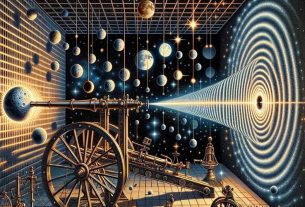New research by Dutch astronomers disputes the explosive study results published a few weeks ago, suggesting the presence of phosphine (and therefore potentially life) in the atmosphere of Venus.
In mid-September, a research team led by astronomer Jane Greaves of Cardiff University announced that they had detected phosphine in Venus’s upper atmosphere. The announcement made a lot of noise as anaerobic bacteria on our planet can produce these molecules.
To be clear, these researchers never claimed the discovery of life on Venus. They underlined that this could explain the presence of said phosphine. It was also possible that the substance was generated by exotic chemical reactions that we don’t yet understand and that have nothing to do with life.
However, an independent re-evaluation of the methods used by these researchers comes to an entirely different conclusion. According to new research by Ignas Snellen and his team at Leiden University (The Netherlands), there is true “no statistical evidence” for the presence of phosphine in the Venusian atmosphere.
Too low a signal-to-noise ratio
In the initial study, published in Nature Astronomy, the researchers relied on data collected by the Atacama Large Millimeter / submillimeter Array (ALMA) in northern Chile. Concretely, Ignas Snellen and his team looked at the same data provided by the original research team. They then applied the same methodological approach to see if they could isolate the spectral signal from phosphine (267 GHz). In conclusion, the Dutch team could not verify the results.
Concretely, this is what it means. When “scanning the sky,” astronomers are faced continuously with background noise issues. The main challenge then is to “disentangle” the wanted signals from the unwanted signals.
Here, the original team claimed to have recorded far more “good data” than bad (i.e., high signal-to-noise ratio). A claim the news disagrees with. On the contrary, according to them, the signal-to-noise ratio of the proposed phosphine signal was quite low. They even consider it too weak to be meaningful.
So “the greatest scientific discovery in all of history” will have to wait. Like the astronomer, Carl Sagan aptly put it: “extraordinary claims require extraordinary evidence.” In this case, we still lack evidence. To be truly considered, several independent teams should have reproduced the results of this study.
That said, this story may not be over yet. Indeed, the new document itself has yet to undergo a peer review.

Email: mary@satprwire.com Phone: +44 20 4732 1986
Marry is a fitness freak in every manner and gives proper care about her health and of others. She is probably the best person we have at Daily Research News for covering articles from the Health sector. If not at work, she can be seen drinking a cup of coffee.



